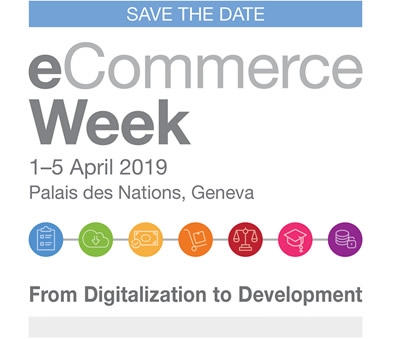Monetising big data in Africa
3 Apr 2019 13:15h - 14:45h
Event report
[Read more session reports and live updates from the UNCTAD E-commerce Week]
Mr Martin Labbé (Program Manager, Tech Sector Development Coordinator & NTF IVS) moderated the session. He introduced the idea that big data is the new oil of our economy. It is growing exponentially, and big data has already impacted all sectors such as health care and retail. There are many opportunities in Africa. The session will address these opportunities along with the challenges of big data in Africa.
Mr Mohamad Damush (CEO, Telecel Group) began the dialogue by explaining that almost all data centres and storages of data are found in Asia and America, leaving two options: go through Europe or go through Africa. His company saw this as an opportunity to create a network that would build data centres for a shortcut through the continent. However, challenges of cost are found, not primarily in the building, but rather in starting from scratch by putting in fibre and connectivity as a whole, since Africa currently lacks this infrastructure. As well, regulations are difficult with the political and logistical issues of crossing from country to country. This also creates opportunities for data localisation in Africa, but investment is needed and, although the current figures are insignificant, the potential in figures is what Damush emphasises.
Mr Kamil El Khatib (ICT Policy Analyst, African Development Bank (ADB)) joined the panel stating the bank view. He said there is a need for financing data centres, but banks need to take investments with little risk. There is a need to connect, but he thinks the greater opportunity is in big data centres, rather than in small scale ones. Further, there needs to be more interaction between the private and public sector so that a standardisation of cross border building can be achieved, making investments possible.
Next, Mr Malik Khan (Founder and CEO, PointClick Technologies) said that we are in exciting, but also very scary times. The lack of infrastructure in Africa, he stated, is both their biggest liability, but also largest opportunity. He looks at the continent of Africa and sees they have an opportunity to become independent by investing in human capital to allow the continent to overcome a digital transformation. Although they need infrastructure for things such as data centres, he emphasised the need for a digital transformation framework to achieve independence.
Ms Sophie Kwasny (Head of the Data Protection Unit, Council of Europe) disagreed, stating that personal data is not the new oil because as humans, personal data is an unalienable right and therefore there can be no monetisation of this data unless it is anonymous. She said there is a linkage between economic growth and justice so that sustainable development goals may be achieved with digital growth. Data protection is not as new as we may think, and we need to take measures to achieve safety.
Mr Mouhamed Moustapha Diouf (General Manager, Baamtu SARL) introduced the idea that big data is growing in Africa since the young generation has been born into a mobile world where applications are huge. Connectivity is increasing, as smart phones are more prevalent. Additionally, we have big data, so we need to utilise it to create artificial intelligence. We can monetise big data this way by using data sets to achieve things such as predicting cancer or ending illiteracy. However, there are limitations that include access to data, privacy, and connectivity issues. Regulations are necessary in this regard, but it is important to regulate in a manner where innovation still has room to flourish.
By Natalie Meyer
Related topics
Related event

eCommerce Week 2019: From Digitalization to Development
1 Apr 2019 15:45h - 5 Apr 2019 15:45h
Geneva, Switzerland
